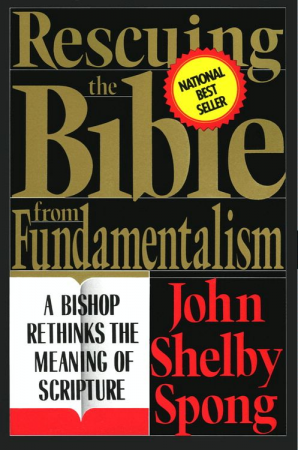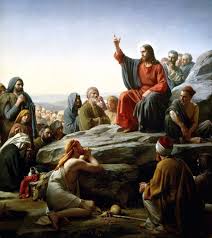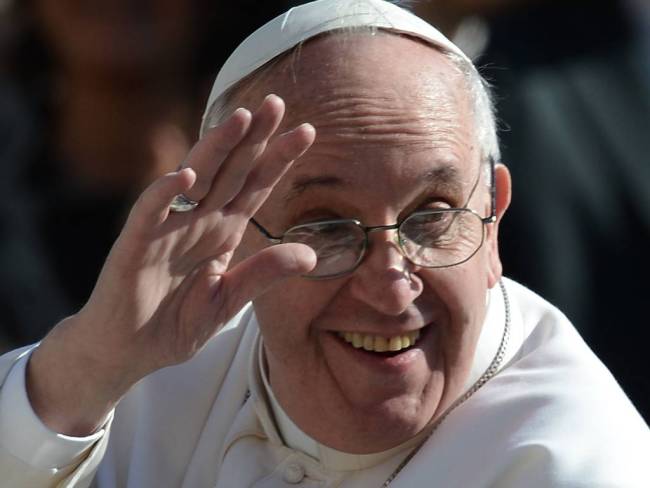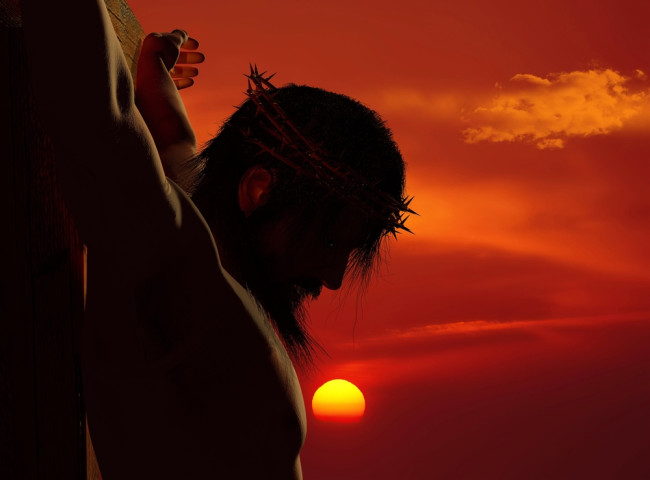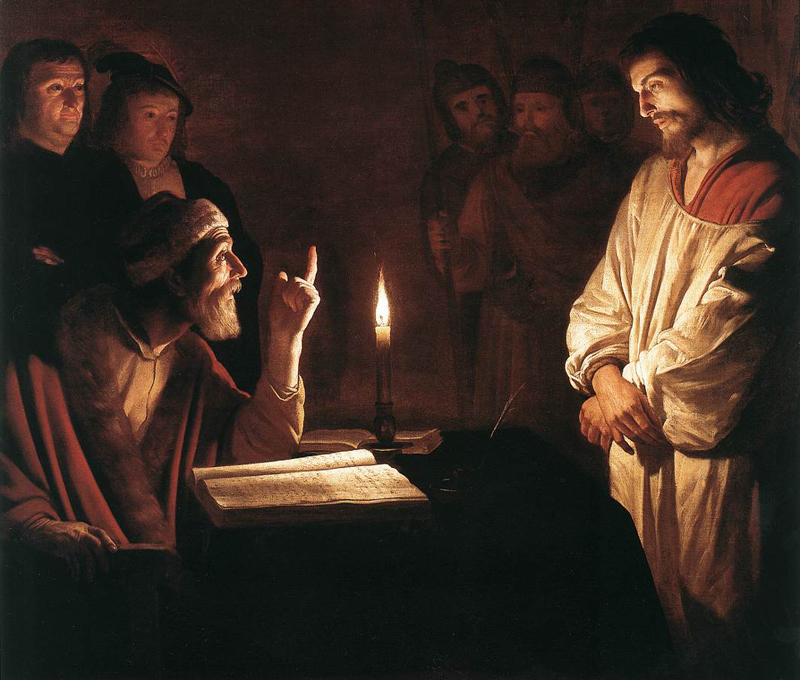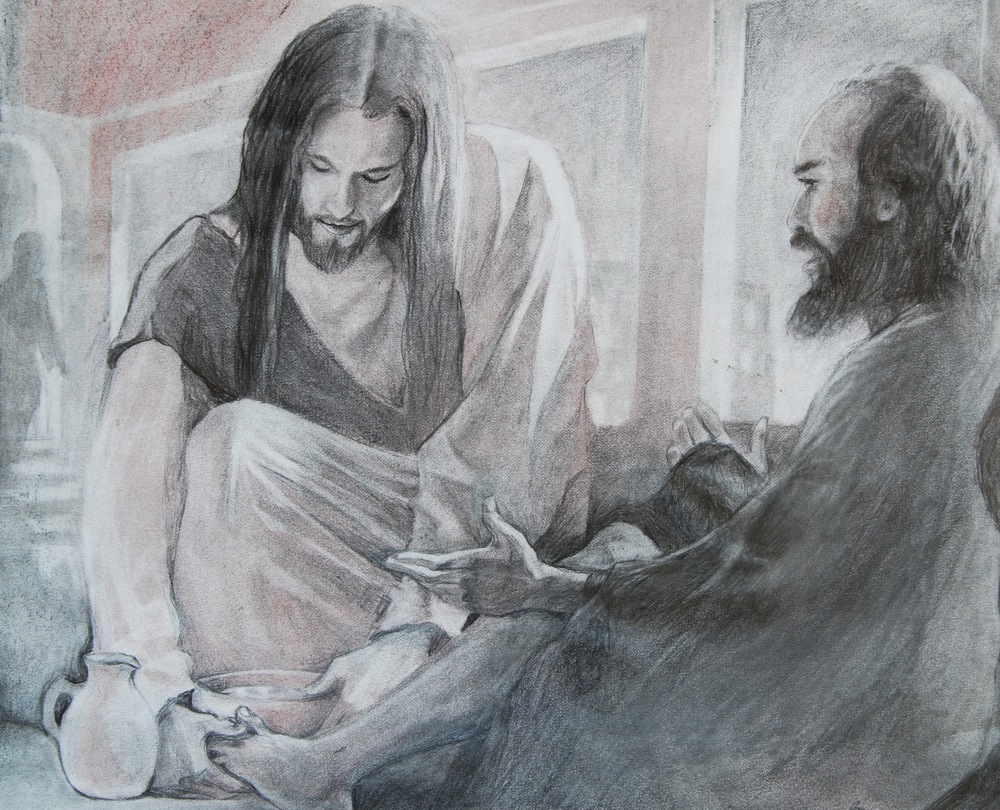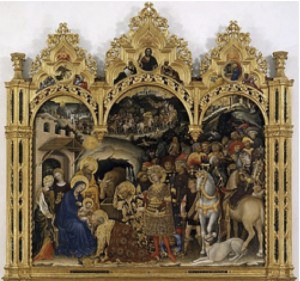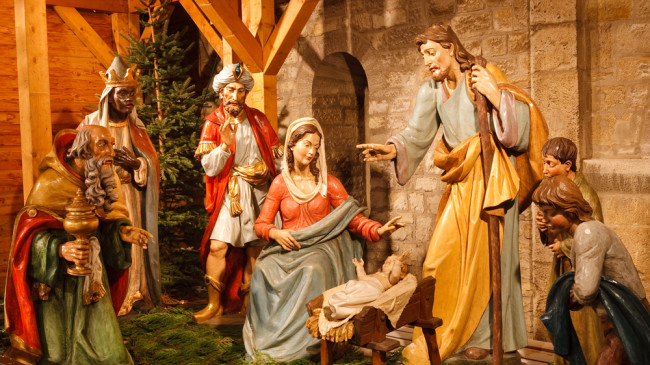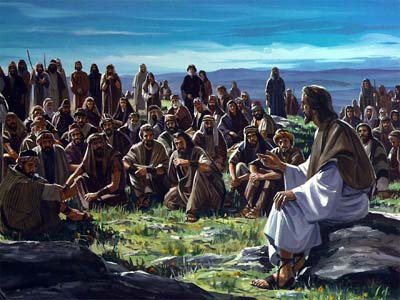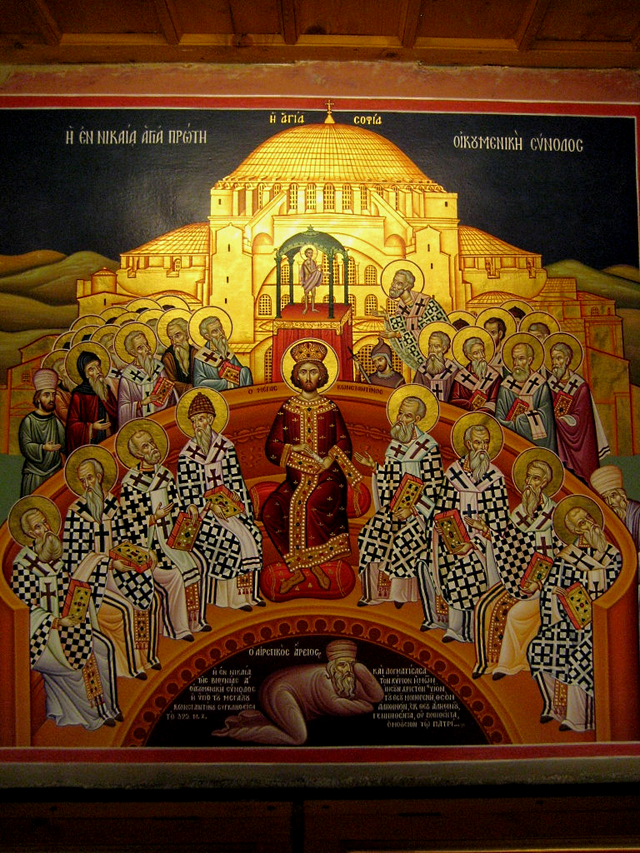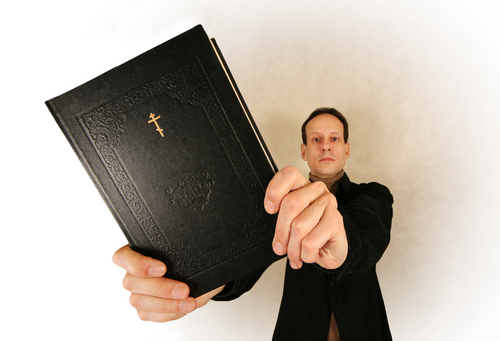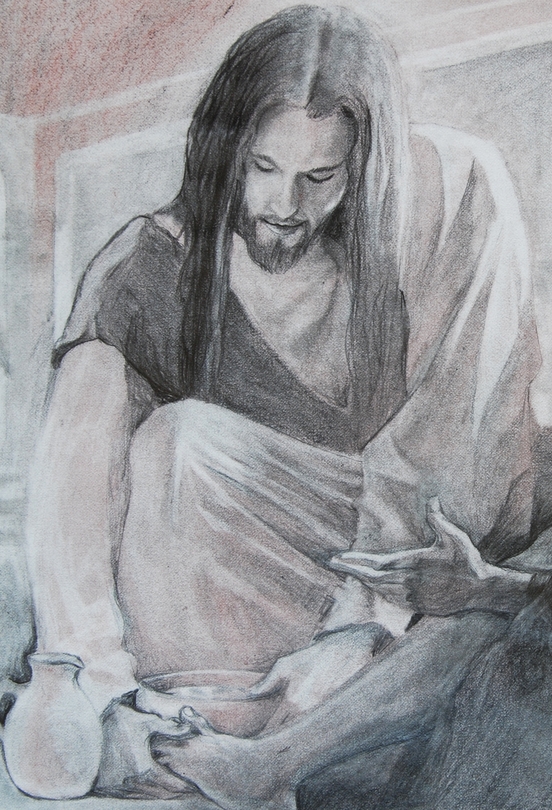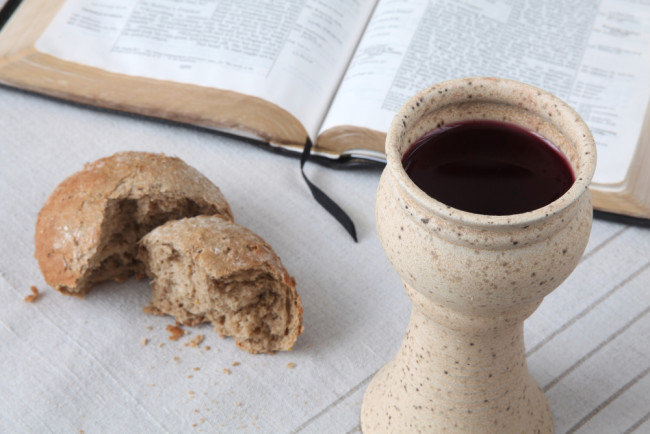... as I attempt to respond to Dietrich Bonhoeffer's question: "Who is Christ actually for us today?" I first encountered the phrase "Jesus Is the Memory of Our Future" on a t-shirt from Holden Village.
Then Jesus brought a little child into their midst and putting his arm around the child, said to the Twelve, "Whoever welcomes a child such as this for my sake welcomes me. And whoever welcomes me welcomes not me but the One who sent me." Readings included Exodus 40:34-38, Mark 9:33-37
In the wake of the murders of nine African Americans at Emanuel AME church in Charleston on June 17 by a self-proclaimed white supremacist, there was a burst of media interest in the scale and scope of white supremacist groups and networks within the U.S. What stands out in this recent media coverage, and in scholarship bearing upon both contemporary and historical trajectories of white supremacist movements, has been the tendency to view white supremacy—the idea that white people are inherently superior to people of color—as a relatively marginal or “extremist” dimension of American socio-religious culture.
This Study Guide, Shedding Light on the Gospels is based on Bishop Spong's "Rescuing the Bible from Fundamentalism." The Study Guide is organized by Discussion Sessions and includes extensive quotations extracted from Bishop Spong’s book. In addition to Bishop Spong’s book, we will be reading the three gospels: Mark, Matthew and Luke (in that order).
I heard a contemporary hymn on Sunday morning during the Eucharist and fell in love with the melody. It was the “Untitled Hymn
“LAUDATO SI’, mi’ Signore” – “Praise be to you, my Lord”. In the words of this beautiful canticle, Saint Francis of Assisi reminds us that our common home is like a sister with whom we share our life and a beautiful mother who opens her arms to embrace us. “Praise be to you, my Lord, through our Sister, Mother Earth, who sustains and governs us, and who produces various fruit with colored flowers and herbs”.
From the Celebrating Mystery collection
Our senses and our use of them are part of God's creation. To attempt to deny our senses is as much an insult to God as is the misuse of them.
From the Festive Worship collection
1. Easter is the festival of the irrepressible God whom not even death can contain. 2. Most of us would prefer a cozy God to a God who shatters our complacency. Yet Easter is about a God who bursts tombs of the familiar, the ordinary and the mediocre.
(Excerpt from Theology From Exile Vol. III, The Year of Mark by Sea Raven, D.Min.) Acts 10:34-43; Isaiah 25:6-9; Psalm 118:14-24; 1 Corinthians
From the Boundless Life collection
I sing a song of the woman's voice Tender and strong and clear; Of those who longed to gain the vote Despite men's doubt and fear;
Loving kindness is the cultivation of benevolence toward all living beings, love without clinging, and a strong wish for the happiness of others. It is the kind of love that often bubbles up freely in the heart of a mother for her child. It is a love that is independent of expecting or needing anything in return.
When someone shares in our suffering, somehow the knowledge that we are not alone, that there is someone out there who knows the pain that we are going through, the knowledge that we are cared for by someone who truly knows our pain comforts us and gives us the strength we need to endure our suffering. To be alone in our suffering is the most terrible thing that we can imagine. The Good News that God is LOVE means that LOVE will not let us suffer alone because LOVE is determined to suffer with us. Working in, with, and through those who have experienced our pain LOVE is able to enfold us and say, “I know, my child, I know.”
Satire and Blasphemy in the Teachings of a Galilean Sage
Radical religious extremists with a distorted view of Islam commit horrific acts of terror, executing the staff of a small satirical French publication. The satirists had dared to depict the Prophet Mohammed in cartoon caricature; all the while lampooning those misbegotten adherents who in turn regard such irreverent acts as blasphemous. The Western world reacts with outrage and defiance to such an affront. World leaders join a million person protest and unity march through the streets of Paris, chanting “Je Suis Charlie,” in defense of freedom of speech, and on behalf of the publication’s name. While a clear distinction might be drawn between the use of words and the vehement reactions they may incite, more profound underlying questions remain. While anti-blasphemy laws are common in Muslim countries, countless other "secular" countries have laws against the defamation of religion, as well. Once the dust settles and more thoughtful discussion ensues, one might ask what constitutes the differences between hate speech and freedom of expression? This commentary consider s esus' use of what was deemed blasphemous satire, it's intended purpose, and well-known consequences.
How do you account for / explain the different versions of the same event? To what extent does it matter in your understanding and experience of Jesus that the details that describe such a fundamental event in his life are not an agreed Gospel record across Mark, Matthew and Luke? Why did John ignore all the details of the baptism of Jesus?
Jesus called on people to change. Not just a little, but dramatically. The ‘kingdom of God’ is the term Jesus used to express his vision of a profound transformation of human beings and human institutions—social, political, economic and religious—to fully express the character and nature of God—a God of love. To accomplish this vision, Jesus worked toward the creation of a new kind of community dedicated to values of compassion, generosity, peace, and justice. He was creating a movement for change, a people engaged in a vast conspiracy of love.
The challenge for a progressive Christian who has moved beyond such notions as virgin births and gods disguised in human form come to save us from ourselves is to remember that it is as much a historical development, as it is a theological one. That is, the attribution of a “Christ” title accorded a very human Jesus constitutes the imaginations -- if not machinations -- of an early Church; consisting of very human, second-generation followers of a 1st century Galilean peasant sage and itinerant preacher. And who all but drowned out the authentic voice of the one who was once born and dwelt among humankind. Such an assertion is simply based on the fact the historical Jesus never self-identified as the “anointed one,” the Christ. As such, if one were to remove the Christ-title from the various birth narratives of those secondary traditions of this religious movement, what would remain of the “Christmas story” that has become as prevalently assumed, as it has been unexamined? If we took the Christ out of Christmas, what might remain of the voice of one who was born and dwelt among us? You can read more here.
On the theme: The Tree, The Carol, the Child
Christmas is a time to move into the world of images and dreams, a time to allow the 'make believe' happen. Let us be still and reflective.
What can we learn from the Christmas story? I believe that just as Jesus seemed to be aware of the Divine Spark (or Christ) presence within him, which allowed him to love almost unreservedly and break boundaries, so too we are invited to see this Divine Spark within ourselves. God is literally with us. And isn't this what we need in today's world, where we see atrocities and tragedies such as the ones I listed above? If each of us were to acknowledge our inner divinity, and then recognize our neighbour's inner divinity - regardless of their religious beliefs or non-beliefs - would we then see larger stepping stones toward global peace?
Advent is about waiting and watching: waiting and watching for the coming of Christ. We wait for just the right time to celebrate the birth of Christ in our midst and we watch for Christ’s promised return. But how do we wait and where do we watch?
The Greek word for “faith” in the New Testament is pistis, which occurs 243 times. As a noun, pistis is used as a technical term for “forensic evidence.” In other words, faith is not blind; we must investigate to establish the facts. I agree with retired Episcopal bishop, John Shelby Spong, who writes, “My problem has never been my faith. It has always been the literal way that human beings have chosen to articulate that faith.” To many Christians, faith means believing highly suspect claims, which is a problem for me. Thinking isn’t a sin. God created our minds and I’m certain that we were intended to use them.
One of the most serious theological conflicts in the history of Christianity occurred more than one thousand six hundred years ago. Known as
What Does Hebrew Scripture Say about Life After Death? There isn’t much in Hebrew scriptures about life after death. According to Ecclesiastes, death
I think Christian missionaries should live among the people exhibiting their Christianity in their daily lives. If the people see something in their lives that is missing in their own lives they will ask about it, which gives the missionary permission to tell them about their faith.
For Christians grace is God’s gift of pardon. According to William Barclay the Greek word for grace was originally a military term. When an emperor came to the throne or celebrated a birthday, he would give his troops a donatirim (donation), which was a free gift that they had not earned; it was given out of the goodness of the emperor’s heart. This idea was picked up by the Christian scripture writers when they wrote about the grace of God. Grace is something that is unearned and undeserved – unmerited pardon.
Mary, we did not know you. Kept hidden for centuries you were despised, A Queen not seen, under harlot’s disguise. Mary, we did not know you.
I think we need some method of communicating with God and prayer is the logical answer. But prayer in which we stop everything we are doing, get down on our knees, fold our hands and pray is not my idea of prayer. I think we should try to communicate with God any time we have a second to think about God or ask God to be with a loved one or friend, or share anything in our life with God. While driving, when watching TV, while on the lake alone, working in the garden, any of those times and many more, we should take a moment to commune (talk, whatever word you want to use) with God. It may be that those moments are more for us than for God, but I like to think that God listens and cares. I admit that I get awfully frustrated when I feel God is not listening because my petitions are not immediately answered in the way that I have requested. I know God’s answer may be “no,” but that is difficult to swallow.
Can we actually believe that because Eve persuaded Adam to eat a forbidden apple the entire human race is doomed to hell? Can we truly believe that for several thousand years there was no chance for any human to be saved, even though none of them had anything to do with Adam and Eve’s disobedience in the Garden? Isn’t it ludicrous that a child born today is doomed because Adam and Eve disobeyed God? That creation/damnation scheme sounds more like devil-worship than God-worship.
The idea of a second coming of Christ is a mystery, if not explicitly controversial. Jesus’ followers apparently believed he would return during their lifetime after he was crucified. When that didn’t happen, later followers gradually changed the belief into an indefinite “someday.” After two thousand years of waiting, most Christians no longer look for it to happen in their lifetimes and acknowledge that Jesus may have been speaking metaphorically about his return. It is just as likely that those words were put into Jesus’ mouth by the gospel writers themselves. Wishful thinking?
When it comes to the existence of the devil, people normally have one of two reactions: they dismiss the devil and scoff at the idea that there is such an entity, or they exalt the devil, and attribute far more to him (or it) than is deserved. In a recent Gallup poll, 70% of Americans believe in the devil. Half of those surveyed believe that he (this evil force is most often referred to in masculine terms) is a personal force, while the other half believes he is an impersonal force. Let us see what the Bible says about Satan, the devil and the evil one.
The central focus for Christian liturgy is the ritual Eucharist. Traditionally Eucharist (which means “thanksgiving”) has reenacted the last meal Jesus ate with his followers before the blood sacrifice of his execution at the hands of the Romans, but with the dogmatic interpretation that Jesus died to save sinners from hell in the next life. Twenty-first century progressive Christians are concerned more with living a life of justice-compassion here and now (as Jesus taught) than reconciling with a god that demands blood sacrifice in exchange for a carefree afterlife. What is required is to act with justice-compassion in radical abandonment of self-interest. Suppose that instead of terrorizing ourselves with the Advent of violent judgment, we were to celebrate the Advent of the Christ consciousness; instead of a Eucharist mourning the personal holocaust of Jesus’s death, a Eucharist of Ordination, in which we recommit ourselves to the great work of distributive justice-compassion? We have the power, at any moment, to transform the way we live our lives. We can choose not to participate in the retributive system of imperial war and systemic injustice. We can step into the kind of ongoing parallel universe of God’s justice-compassion at any moment. We can change our consciousness, change the paradigm in which we live, whenever we have the will to do so. Jesus is not coming again. We are; and when the rare opportunity presents itself, we can break the alabaster jar in remembrance of her.




